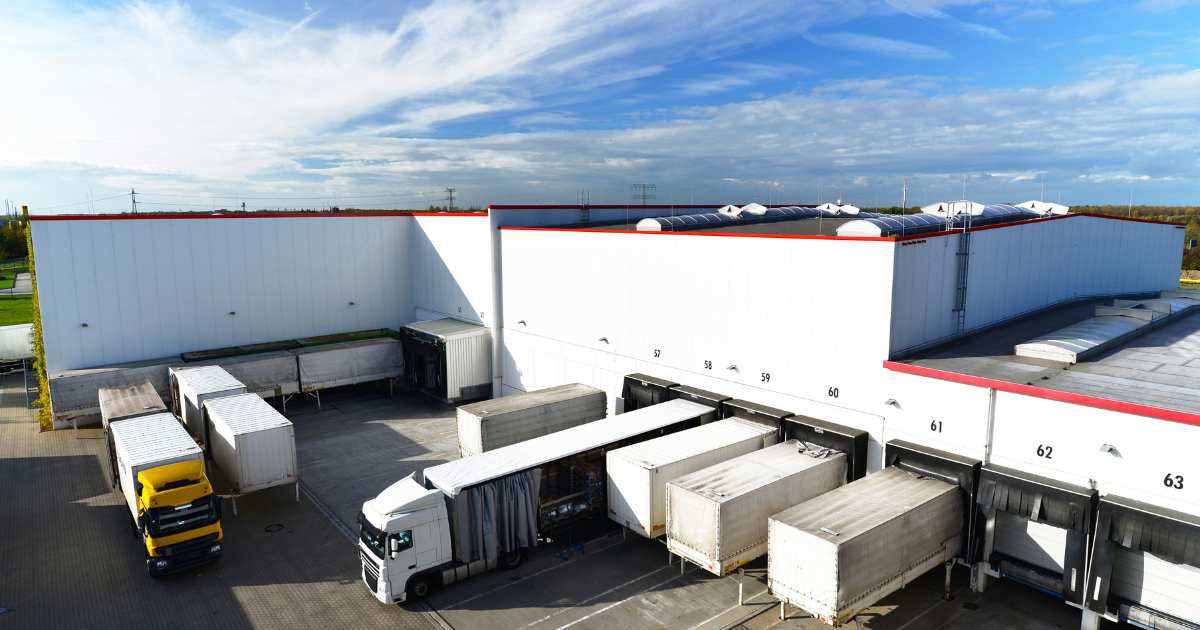
Compliance remains at the centre of any successful, lawful business. The responsibility of being compliant is always on the person in charge of the company. That’s why they need to know what compliance for logistics companies in South Africa mean.
Every business owner, managing director or chief executive officer has heard the word compliance a million times. So what does this mean? For logistics companies in South Africa, compliance means adhering to the specific rules set out by the relevant regulations for transport and logistics businesses.
A list of businesses that fall into this category are freight operators, courier and parcel delivery services, third-party logistics businesses, cold chain logistics, and shippers. However, there are many logistics business ideas to choose from.
Here’s a snapshot of the regulations that logistics companies in South Africa need to comply with.
Company Compliance Basics for Logistics Businesses in South Africa
The first step for any business is to ensure that they are a registered company with the Companies and Intellectual Property Commission (CIPC). Once this has been done, you need to contact the tax regulating body, the South African Revenue Service (SARS), is next on the list You need to obtain a tax clearance certificate from them to prove that your business is tax compliant.
Logistics companies also need to have a valid operator’s licence from the Department of Transport.
Furthermore, the operator needs to ensure that the following is in place:
- Vehicles (cars, light motor vehicles or heavy motor vehicles) need to be roadworthy. A Certificate of Fitness will be evidence of this.
- Drivers are trained with the relevant driver’s licenses.
- Drivers are fit and able to carry out their duties accordingly. A regular medical check-up can indicate this.
- Pre-trip vehicle inspections are completed.
- The load do not exceed the permissible axle masses and it is secured before the vehicle leaves the premises.
- In the case of Cross-Border transportation, the necessary permits also need to be in place.
- If food is being transported, the business will require a health license.
- If the type of goods that are being transported is dangerous or hazardous, the vehicle will need to comply with a whole list of other regulations.
The list of regulations set out for the transportation of dangerous goods is set out by the South African National Standards (SANS). Relevant codes to comply with include:
SANS 10228: The identification and classification of dangerous goods for transport by road and rail modes.
SANS 10229-1: Transport of dangerous goods – Packaging and large packaging for road and rail transport Part 1: Packaging.
SANS 10229-2: Transport of dangerous goods – Packaging and large packaging for road and rail transport Part 2: Large packaging.
SANS 10231: Transport of dangerous goods – Operational requirements for road vehicles.
SANS 10232-1: Transport of dangerous goods – Emergency information systems Part 1:
Emergency information system for road transport.
SANS 10232-3: Transport of dangerous goods – Emergency information systems Part 3:
Emergency response guides.
SANS 10232-4: Transport of dangerous goods – Emergency information systems Part 4:
Transport emergency card.
SANS 10233: Transport of dangerous goods – Intermediate bulk containers for road and rail transport.
SANS 1518: Transport of dangerous goods – Design, construction, testing, approval and maintenance of road vehicles and portable tanks.
This is vital as complying with transportation regulations also includes that operators ensure that important information about the goods being transported is available for emergency purposes. In the case of a spill or accident, for instance, emergency responders need to know how to treat the scene.
Environmental Management regulations can be found in the ISO 18000 and 14000 Standards.
Legislation that Governs Compliance of Logistics Companies in South Africa
In South Africa, the legislation that underlines the rules that logistics businesses follow is the National Road Traffic Act of 1994. Section 85 outlines the Road Freight Industry Regulations.
This sets out the requirements for vehicle specifications, load limits, safety permits, and driver qualifications. It also includes information that needs to be kept on record such as inspection and maintenance plans, and route plans and schedules
Further amendments to these laws are set out in the following Acts:
- National Road Traffic Act, 1996 [No. 93 of 1996] and as amended by National Road Traffic Amendment Act 8 of 1998 [W.e.f. 1 August 2000 – Proc. R47 / GG 21425 / 20000731]
- National Road Traffic Amendment Act 21 of 1999 [W.e.f. 1 August 2000 – Proc. R48 / GG 21425 / 20000731] [W.e.f. 20 November 2010 – Proc. 61 / GG 33742 / 20101110]
- National Road Traffic Amendment Act 20 of 2003 National Road Traffic Amendment Act 64 of 2008 [W.e.f. 20 November 2010 – Proc. 60 / GG 33742 / 20101110]
Logistics companies that don’t comply can receive a hefty fine or be closed down.
Other legislation to comply with is the Occupational Health and Safety Act 85 of 1993 if your business also has warehousing facilities.
National Bargaining Council for the Road Freight and Logistics Industry (NBCRFLI) is governed by the Labour Relations Act of 1995. This council protects the mutual interest of the road freight and logistics industry. They negotiate important factors such as industry wellness between employees and employers such as the maximum driver hours, minimum wage, and provident fund deductions.
The Administrative Adjudication of Road Traffic Offences Amendment Bill, 2015 [B 38B-2015] covers information about traffic fines, overloading and impounding of vehicles. Operators will benefit from familiarising themselves with this bill.
The Customs Control Act 31 of 2014 is important to any logistics company that will be crossing borders as certain taxes on the import and export of goods apply. It includes information about cross-border permits, customs road manifest, F178 – bank clearance for goods valued at R 50 000 or more, veterinary health or agricultural permits and certificates, as well as the Certificate of Origin (SADC, COMESA or SAD500).
Updates to this law are included in the following amendment acts:
- Amended by Tax Administration Laws Amendment Act 22 of 2018
- Amended by Tax Administration Laws Amendment Act 13 of 2017
- Amended by Tax Administration Laws Amendment Act 16 of 2016
- Amended by Tax Administration Laws Amendment Act 23 of 2015
- Amended by Tax Administration Laws Amendment Act 44 of 2014
With the South African railway leaving a huge gap in the transportation network for goods, logistics companies are filling the gap. Entrepreneurs who are leveraging this opportunity can easily start their logistics business. The first step to their success is to ensure the compliance of logistics companies operating in South Africa.







